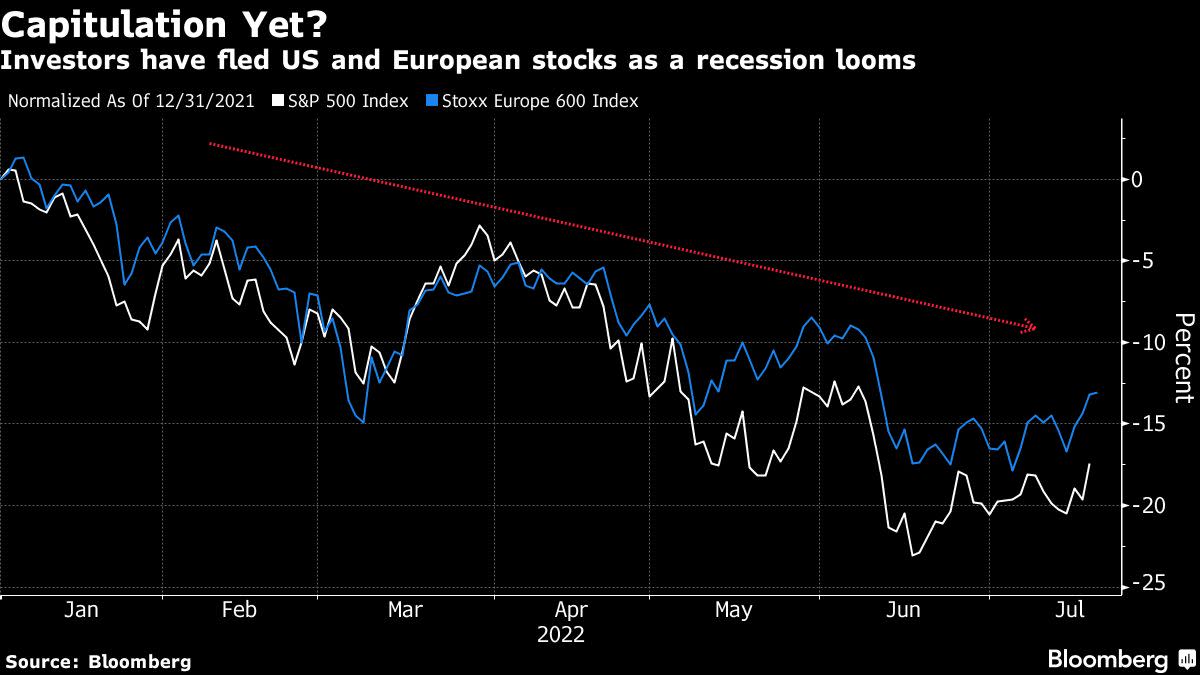
(Bloomberg) — Stock markets are yet to see full capitulation from investors, raising the risk of more declines in the short term, according to Sanford C. Bernstein strategists.
“We have not yet seen capitulation in outflows from equity funds,” strategists Mark Diver and Sarah McCarthy wrote in a note on Wednesday. “In fact outflows, excluding Europe, have only just begun.”
Bernstein’s comments stand in contrast with the findings of the Bank of America Corp.’s July global fund manager survey, which signaled that full capitulation has been reached after investor allocation to stocks plunged to the lowest since October 2008 while exposure to risk assets dropped to levels not seen even during the global financial crisis.
Global equity markets have slumped this year on fears of a looming recession as hawkish central banks race to tame scorching inflation. Even so, stock funds have seen $181 billion in net inflows in 2022 while bond funds have been hit by $206 billion of outflows, according to a Bank of America note last week citing EPFR Global data.
“We may already have seen capitulation from bond funds,” Bernstein strategists wrote. “Significant selling in the second quarter has been followed by two weeks of net purchases so far in the third quarter.”
Bernstein strategists said that global equity fund flows have “remained remarkably resilient this year” and that most of the inflows occurred during the first quarter, followed by only minor selling of $8 billion in the second quarter even as markets were rocked by the highest inflation in decades and rising risks of economic stagnation.
The broker’s short-term indicator of investor sentiment is neutral, although the longer-term indicator is at extreme pessimistic levels, a divergence which they said “suggests that there may be strong returns over a period of a year or more, but in the short term there may be further downside to equity markets before a tactical capitulation level is reached.”
Bank of America strategists said their custom bull & bear indicator remains “max bearish,” which could be a contrarian signal for a short-term rally in stocks and credit in coming weeks.
Market participants are looking to the corporate reporting season for the next major trigger for stocks. Negative news during the second-quarter earnings season could lead to “proper capitulation,” Bank of America strategists led by Michael Hartnett said in a note on July 14.
Morgan Stanley strategists also said late on Tuesday that the earnings season could be a negative catalyst for equities in the coming weeks and that they remain “skeptical” that margin pressures would ease beyond the quarter against the backdrop of high costs and a stronger dollar.
©2022 Bloomberg L.P.